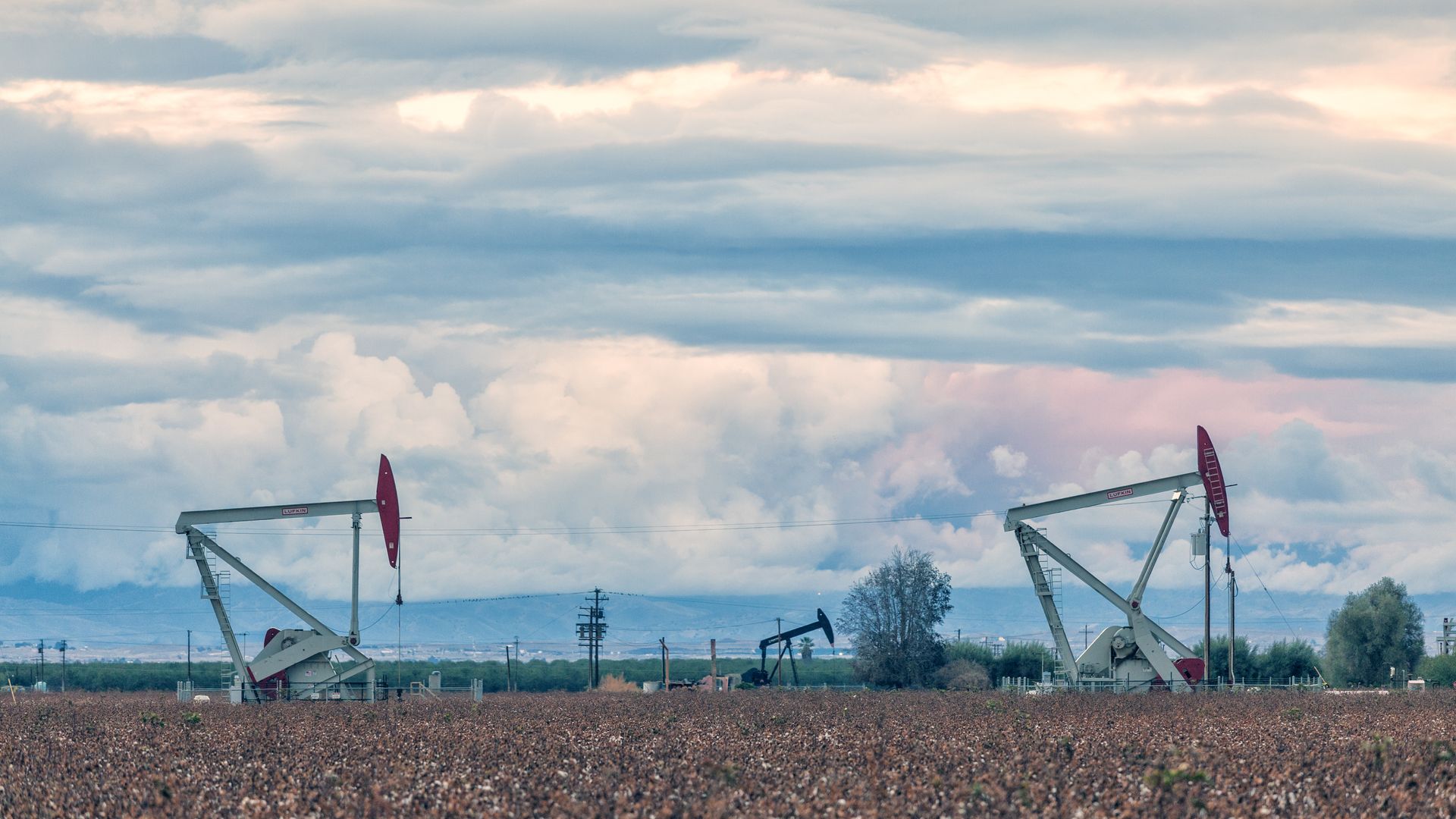Updated Jan 24, 2018 - Energy & Climate
Expert VoicesU.S., a fossil fuel leader, getting outflanked on advanced energy
Add Axios as your preferred source to
see more of our stories on Google.

Pump jacks at an oil well and fracking site in California's San Joaquin Valley. Photo: Citizens of the Planet / Education Images / UIG via Getty Images
